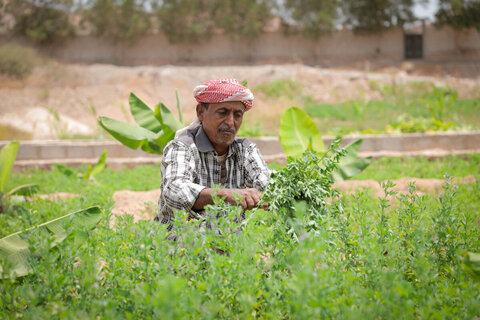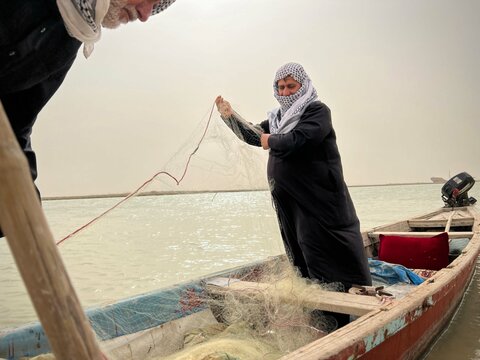Prospects for peace in Iraq
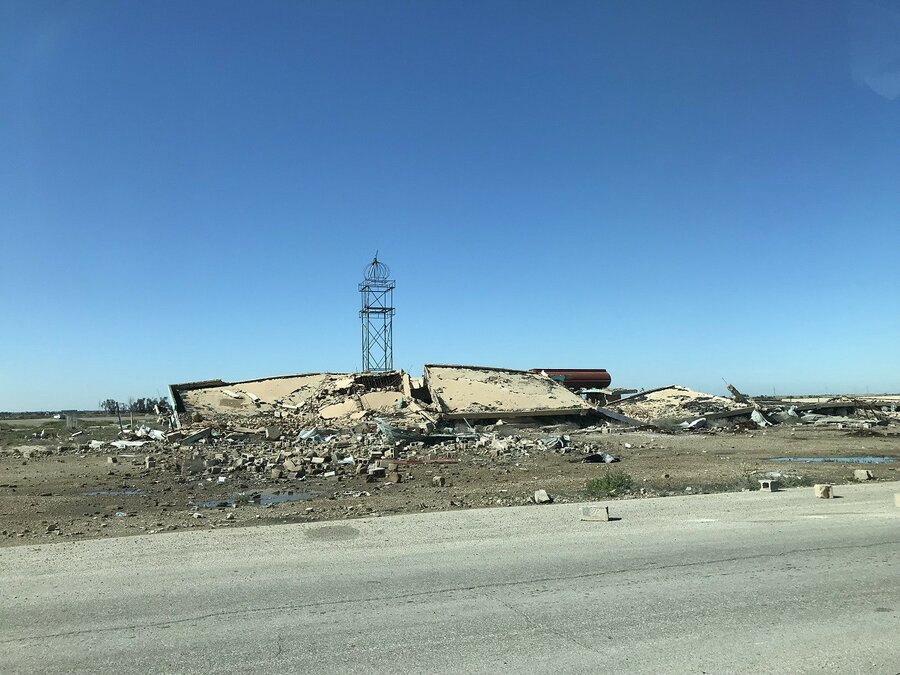
The signs of war are all around as we drive past the squat, surly walls of Abu Ghraib prison, out along the motorway from Baghdad towards the wild west of Anbar province: shattered buildings, collapsed flyovers and piles of rubble by the roadside.
Against this backdrop, the talk in the vehicle is not so much about conflict as about the peace which is tentatively establishing itself in Iraq. People are returning to their communities, picking up their lives and, where possible, their livelihoods. But there are still 1.8 million people displaced, nearly half a million of them living in camps. Corruption is rife, social services are scant, paramilitary groups abound. Islamic State (IS) may have been defeated but few believe the threat is over.
What chances of peace, then in such circumstances? That is the question being turned over by three of the passengers: Rachel Goldwyn and David Branca from the World Food Programme (WFP) and Gary Milente from the Stockholm International Peace Research Institute (SIPRI). The two organizations last year formed a partnership to investigate what contribution WFP might be making to improving the prospects for peace in the world. As a first step, experts have visited four countries affected by conflict or the risk of it: Mali, Kyrgyzstan, El Salvador and Iraq. I've joined them on the Iraq mission with a cameraman to document their research on video.
"Iraq's a really interesting case," says Gary. "It has a number of challenges, tribal challenges, ethnic challenges, governance reform challenges. These are all places where WFP can contribute to peace through their activities."
The destination today is Ramadi, the town which probably suffered more destruction than any other in Iraq during the war against Islamic State. The researchers have been invited to a gathering on the banks of the Euphrates River to mark the completion of a WFP project to rehabilitate kilometers of irrigation canals destroyed in the closing stages of the war. They want to hear the voices of those involved in the project.
While the research team is conducting interviews, I talk to a couple of farmers who've worked on the project. Mohammed Jama'a and Mitib Ibrahim fled Ramadi with their families as IS advanced on the town in 2015, only returning after its liberation the following year. Knowing how crucial the canals were to their future, the two men joined the work teams who received cash from WFP while cleaning out the channels and repairing the pumping stations which had been trashed by retreating IS fighters.
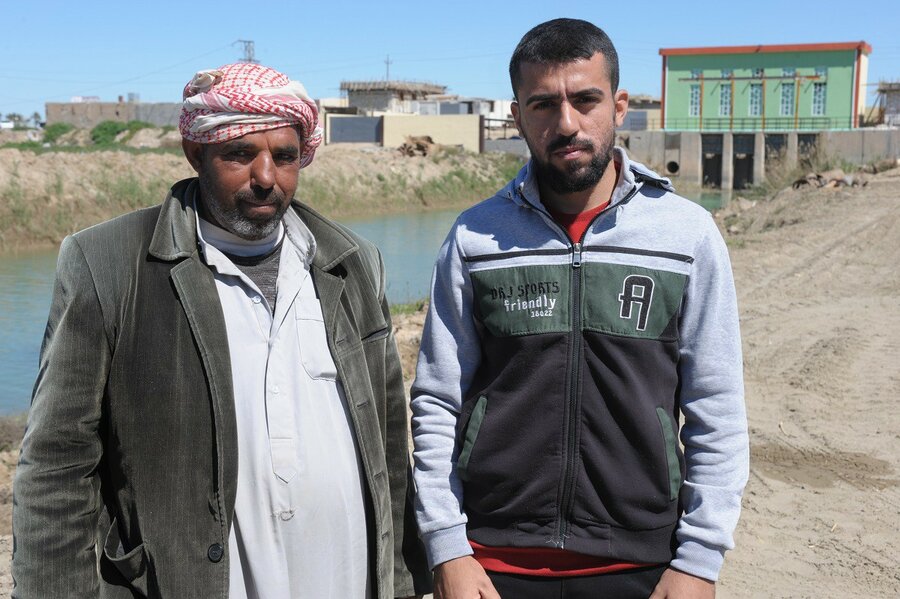
"When families returned to this area, there was no contact between them," Mohammed tells me. "But after this project, they started working together. My friend beside me" — he indicates Mitib with a nod of his head — "he's from a different tribe and we've got to know each other through the project."
I want to accompany the two men back to their farms and film them in their fields but time is tight and we're soon back on the road, driving to our next destination. On the way, I tell Rachel about the farmers and ask how such testimonies might relate to their inquiries.
"We're trying to identify how we might be contributing to peace," she says. "We call that a theory of change. For example, a canal project might have its own objectives — bringing water to people's farmlands. We're trying to understand if there were wider results from that canal being repaired. Perhaps working together has helped them break down old animosities. These are the sorts of changes we're trying to find out about when we talk with the communities."
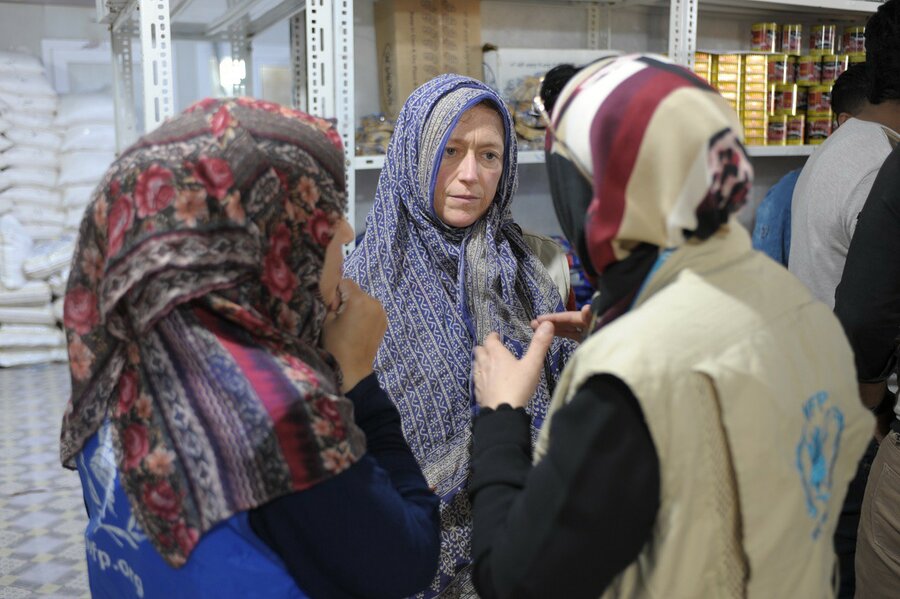
If such principles can be established across a range of research, then it might be possible to design and implement humanitarian programming more effectively — a priority for WFP since the UN Security Council last year passed an historic resolution acknowledging that hunger can never be eliminated from a world at war.
But there is another equally — if not more important — concern for WFP and other humanitarian organizations.
"We're really on two journeys," Rachel explains. "While we're looking at our contribution to peace, we need to make sure we don't make mistakes and get caught up in conflict. We call this being ‘conflict-sensitive'. And, right now, we don't really have the foundations for that in place."
As if to underlie the complexity of this challenge, we arrive at Amriyeat Al Falujah, a camp of white tents stranded in the sun-blasted wastes of Anbar where the team is to interview families displaced by the war and who for various reasons — lack of security, lack of services, lack of employment — are unable to return home. There are people from different tribal background here. Some families are tainted by an association with IS because a relative has been involved with the extremist group.
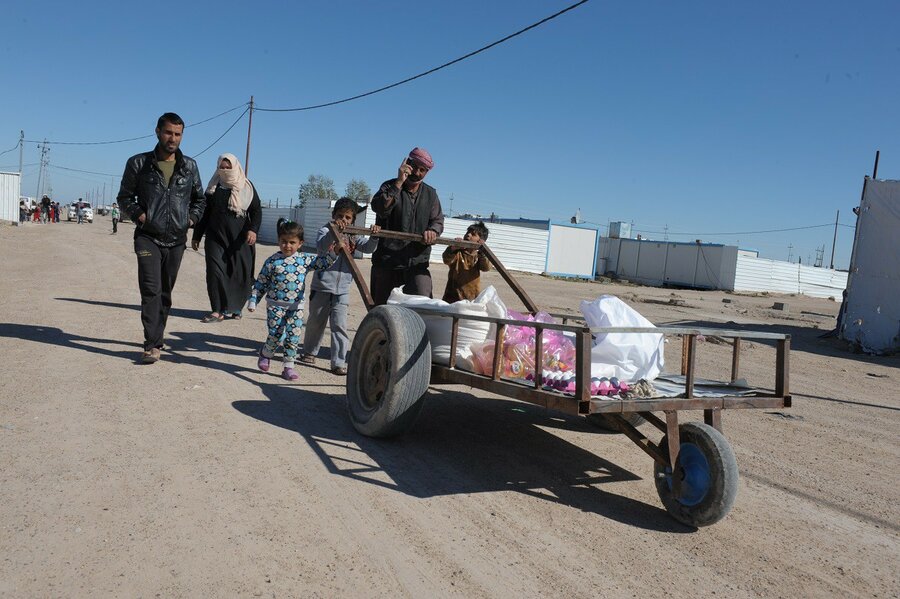
Providing humanitarian assistance in such an environment is challenging. Against the imperative to help the most vulnerable must be balanced the importance of not favouring — or not being seen to favour — one section of the community over another. Getting it wrong can be disastrous for all concerned. Awareness of such issues and of the principles guiding them is vital if humanitarians are to make a real contribution to building peace in the world. The research now being undertaken by WFP and SIPRI is an important step in that process.

